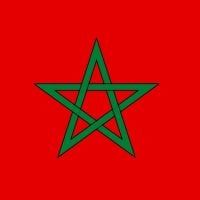Deadline: 10-Sep-2025
The National Endowment for the Humanities (NEH) Division of Public Programs is accepting applications for the Public Humanities Projects Program.
This program supports projects that bring the ideas and insights of the humanities to general audiences through in-person exhibitions and historic site interpretations.
Topic Areas
- To be eligible for funding, your project must focus on one of the following topic areas:
- American Military History and Valor
- NEH invites projects that document and honor the contributions of American military personnel from the Revolutionary War to the present day. Proposals should highlight stories of heroism, sacrifice, and the defense of American freedom. Projects might include platforms that celebrate military achievements and the personal stories of service members, emphasizing their role in defending the country and the American way of life.
- American Military History and Valor
- The American Dream and Economic Freedom
- NEH invites projects that explore the concept of the American Dream through the lens of economic freedom, entrepreneurship, and innovation. Projects should illustrate how American business practices, free market principles, and individual initiative have contributed to the country’s prosperity, economic growth, and global leadership. This could include historical analyses of American industrialists and inventors, case studies of modern entrepreneurs or inventors, or educational initiatives on free enterprise.
- America’s Role on a Global Scale
- The NEH is interested in proposals that explore the role of the United States as a leader in global affairs, emphasizing themes of American exceptionalism, moral leadership, and America’s national interest. Proposals should focus on singular American statesmen—such as Alexander Hamilton, George Washington, Theodore Roosevelt, Franklin D. Roosevelt, Harry S. Truman, John F. Kennedy, Ronald Reagan, or others—as well as the principles that have guided them in their approach to world affairs.
- The Semiquincentennial
- NEH invites projects that renew public engagement with America’s history through an investigation of the people and events leading up to 1776 and beyond, with particular focus on the meaning of the Declaration of Independence. Projects may also explore other time periods, for example, by interpreting the historical legacy of the Declaration or the nation’s founding ideals. Similarly, your project may consider how the revolutionary period shaped the history of a state or locality even if it was not a part of the United States at the time.
Program Categories
- This program supports projects in two categories:
- Exhibitions
- Projects in this category may create permanent exhibitions (on view for at least three years), single-site temporary exhibitions (open to the public for a minimum of two months) or traveling exhibitions that will be available to public audiences in at least two venues in the United States (including the originating location).
- Historic Places
- Projects in this category develop long-term interpretive programs for historic sites, houses, neighborhoods, and regions that are intended to be presented to the public for at least three years. Such projects might include living history presentations, guided tours, exhibitions, and public programs.
- Exhibitions
Funding Information
- Estimated Total Program Funding: $ 6,000,000
- Award Ceiling: $750,000
Duration
- Planning: up to 24 months
- Implementation: 12 to 48 months
- Projects must start between May 1, 2026, and November 1, 2026.
Program Outputs and Outcomes
- The outputs of a successful Exhibitions award may include, but are not limited to:
- Planning documents that will allow for an in-person exhibition (permanent or temporary single site and/or traveling) to move forward
- Implementation of in-person exhibitions (permanent or temporary single site and/or traveling), which may be accompanied by ancillary formats such as a website, mobile application, catalog, or student curriculum
- The outputs of a successful Historic Places award may include, but are not limited to:
- Planning documents that will allow for the creation of interpretive programming
- Long-term (three years or longer) interpretive programs for historic sites, houses, neighborhoods, and regions such as living history presentations, guided tours, exhibitions, and public programs
- The outcome of a successful Public Humanities Project will be the engagement of general audiences with ideas from humanities scholarship through in-person exhibitions and historic site interpretations.
Eligible Activities
- Awards may support activities such as:
- meetings with humanities scholars and other content advisers, program partners, audience representatives, and consultants (e.g., education and public program specialists; historic site, interpretive, or cultural tourism experts; writers; media producers; or digital designers)
- research, including travel to archives, collections, sites, or other resources
- development and production of program or discussion guides, exhibition labels, brochures, digital assets, publications, or other interpretive material
- design of the interpretive formats
- planning and presentation of public programs and related publicity
- evaluation of the project’s impact
- planning and conducting project-specific training for docents, discussion coordinators, or other interpretive leaders
Eligibility Criteria
- To be eligible to apply, your organization must be established in the United States or its jurisdictions as one of the following:
- a nonprofit organization recognized as tax-exempt under section 501(c)(3) of the Internal Revenue Code
- an accredited institution of higher education (public or nonprofit)
- a state or local government or one of their agencies
- a federally recognized Native American Tribal Government
- Individuals and other organizations, including foreign and for-profit entities, are ineligible.
For more information, visit Grants.gov.









































